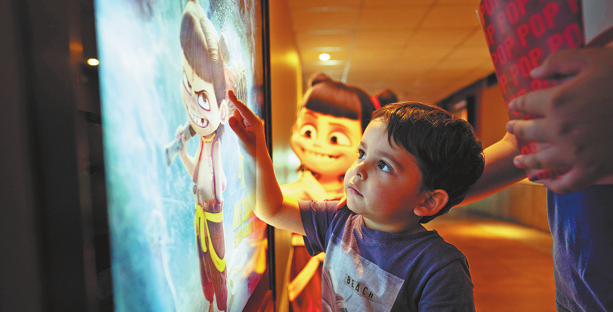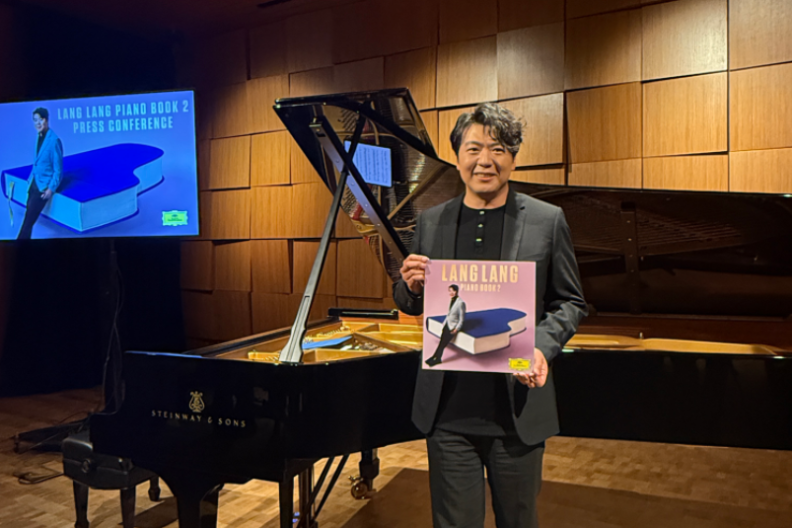How creativity can propel soft power progress
Beijing's rising cultural exports reflect shifts in global perception: Observers


To some observers, the breakthrough of Pop Mart's Labubu collectible dolls as a worldwide craze is a random, even ephemeral event. But to business experts, it reflects something deeper, a transformation from the "Made in China" brand to a new label, "Created in China", and is symbolic of the rise of China's cultural exports.
Chris Pereira, founder and CEO of iMpact, a global communications and business consulting firm headquartered in New York, said that while China was once merely the world's factory, today the country exports its own innovations — not just toys, but also electric vehicles, smartphones, consumer drones, and more — a trend that is starting to take over many sectors.
Deng Chenger, a doctoral researcher and affiliate at King's College London, or KCL, who specializes in China's foreign policy and global strategy, echoed this sentiment. "Labubu signals China's growing identity as a creator of cultural content rather than merely a manufacturer," she said. "Alongside other notable cultural exports, such as the video game Black Myth: Wukong and the animated film Ne Zha 2, Labubu reflects the increasing global resonance of Chinese-origin intellectual properties."
Pereira said what really matters about the Labubu craze is not necessarily the toys themselves, but a broader phenomenon — the public perception of them as something worth owning. He cited Apple's iPhone as a parallel example, noting that, for many people, the piece of hardware represents a lifestyle.
The overseas operations of Chinese brands are shifting toward a significant breakthrough into the circle of products that genuinely align with local or global tastes, rather than simply occupying foreign markets, Pereira said.
Global household names serve as a form of leverage for boosting a country's international reputation, Pereira said. Once a nation has globally recognized brands, its overall appeal becomes greater, which is part of what defines soft power.
According to the 2025 Global Soft Power Index by UK brand valuation consultancy Brand Finance, China climbed to second place, its highest ranking since the annual measurement was launched in 2020.
The research singled out China's steady and outstanding performance in the business and trade pillar, and noted the influence of homegrown brands.
David Haigh, chairman of Brand Finance, wrote in the report: "In 2025, China ranks fifth globally for its 'products and brands the world loves'… Over the past 17 years, the number of Chinese brands in the Brand Finance Global 500 has surged from 13 to 68, and their total brand value has increased by more than 23-fold to $1.4 trillion."
In May this year, an article in The Economist magazine linked China's cutting-edge technology and cultural exports to warmer global attitudes toward the nation, especially among younger generations. The story was titled "How China became cool".
"It is not that China suddenly became 'cool' overnight, but a new strand of narrative surrounding China has begun to emerge," Deng said.
"In much of the Western media, China is perceived as 'powerful' but rarely as 'soft'. Even apolitical subjects often become politicized when China is involved," she added, citing a report jointly published last January by the Lau China Institute at KCL and the Chinese University of Hong Kong, or CUHK.
The study examined over 1,000 articles published between 2020 and 2023 by five major British media outlets, indicating that politics was a prominent theme throughout, with a political lens often used to frame less-reported social, economic and cultural issues.
The oversimplification of stories about China leaves no room for discussing alternative perspectives in policy debates, and distorts perceptions of China as a country and its people, Tim Summers, the author of the study and an assistant professor at CUHK's Centre for China Studies, concluded in the report.
Yet among the general public, the ice seems to be starting to melt. Deng recalled the "astonishment" she felt when she scrolled through the comment sections of some livestreams by foreign influencers, such as IShowSpeed, a popular United States-based YouTuber.
Positive reception
"(The comments) remarkably devoid of the usual cynicism or geopolitical critiques," she said. "Normally, even benign content about China … would attract comments such as 'Why am I seeing Chinese propaganda?' or 'What about (insert political issues).' The positive reception marked a rare and notable shift."
Both Deng and Pereira said Labubu fever is a signal. "It highlights the growing relevance of cultural products that emerge from more grassroots, consumer-driven dynamics," Deng explained.
"Rather than being the result of centrally coordinated campaigns, its success appears to reflect broader shifts in market demand, youth culture, and global aesthetic sensibilities.
"Labubu's success points to the value of a more pluralistic and flexible approach to soft power."
Pereira advocated a low-key strategy for cultivating soft power, opening the door wider to the world and letting what stands out speak for itself.
"China needs to welcome people from around the world to visit, work, or live in China. Then, when they return to their home countries, they can share their China stories. The key to telling China's story well is having others tell it for you," he said, hailing the unilateral visa-free policies.
The road ahead is not without hurdles, Deng said, as even the current promising, long-awaited trend provoked mixed feedback — some responded with curiosity or enthusiasm, while others found it unsettling or even threatening.
"The 'cool China' narrative might just be the beginning, or it could shift quickly due to geopolitics, but China's pivot toward prioritizing creativity is here to stay."
zhengwanyin@mail.chinadailyuk.com

































